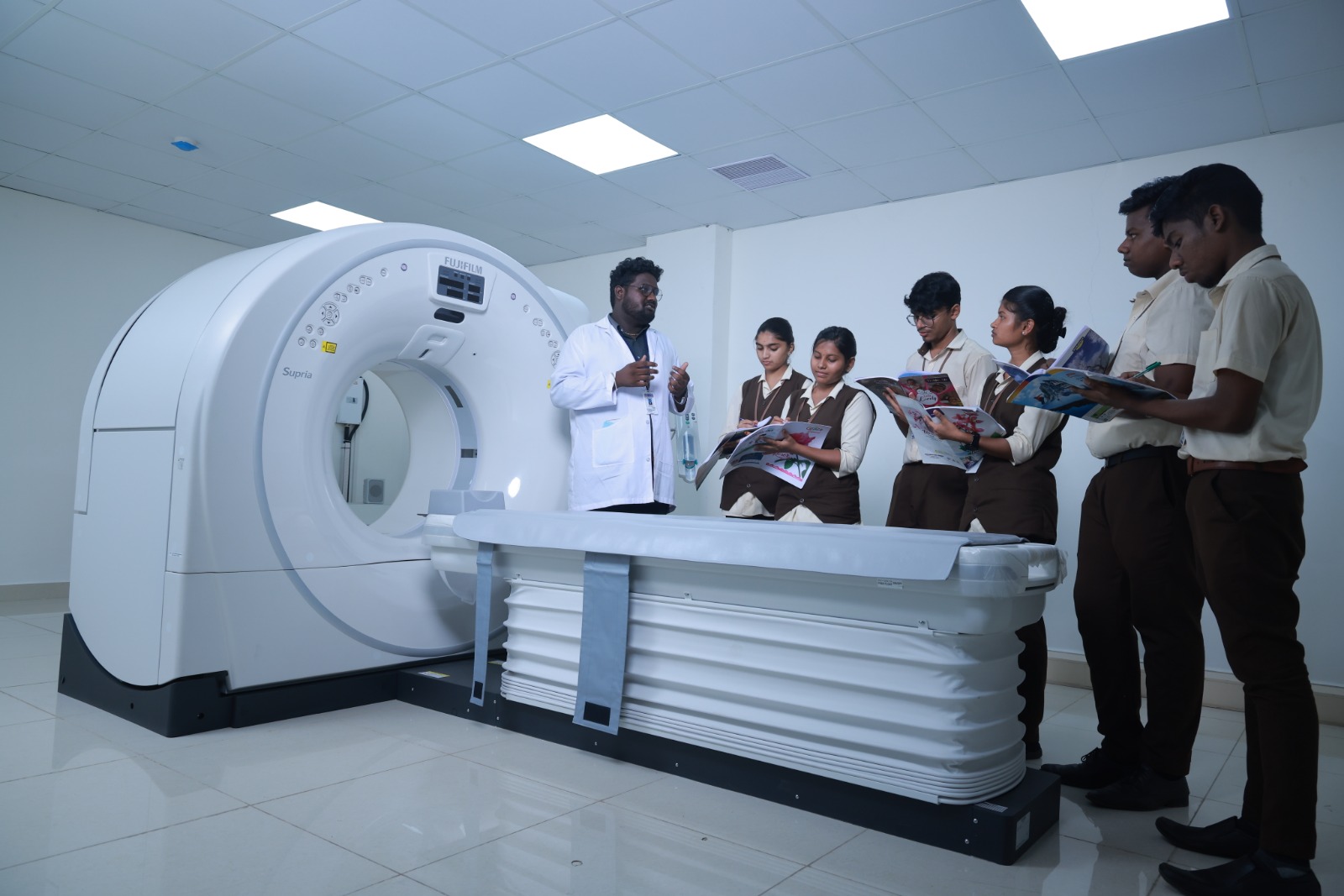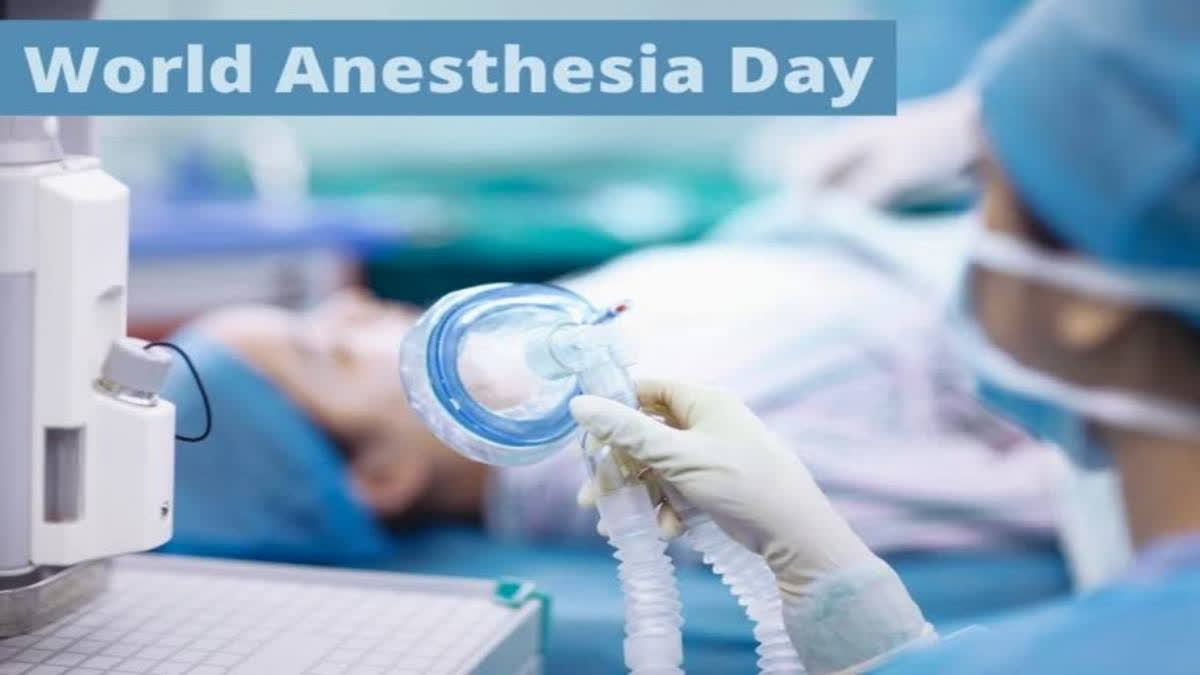- Details
- Written by Super User
- Category: Uncategorised
- Hits: 1392
B. Sc. Medical laboratory technology is a four-year program that focuses on providing students with hands-on training and practical skills in laboratory techniques and procedures.
The students perform various diagnostic analyses on body fluids, which include hematology, bacteriology, immunologic, chemical and microscopic during the course.
The three pillars of Medical Laboratory technology are Biochemistry, Microbiology and Pathology. The Medical Lab Technologists are trained to have basic knowledge in these three pillars of Laboratory Medicine.
Duration:
4 Years (Including Internship)
Eligibility:
To be eligible for admission to the Bachelor of Science In Medical Laboratory Technology program, candidates Must meet the following criteria:
Completion of Higher Secondary Certificate (HSC) or equivalent With a Science Group.
Minimum of 45% marks in the qualifying examination.
Scope:
Medical laboratory technology offers a broad scope of opportunities in various healthcare settings.
- Clinical Laboratories: Performing tests on patient samples to assist in the diagnosis, treatment, and prevention of diseases
- Hospitals and Clinics: Working alongside physicians to analyze specimens and provide accurate results for patient care.
- Research Institutions: Contributing to medical research by conducting experiments, analyzing data, and assisting in clinical trials.
- Public Health Laboratories: Investigating outbreaks, monitoring diseases, and ensuring the safety of food and water supplies.
- Biotechnology and Pharmaceutical Companies: Developing and testing new drugs, vaccines, and medical devices.
- Forensic Laboratories: Assisting law enforcement agencies in criminal investigations through analysis of evidence such as DNA, blood, and other bodily fluids.
- Veterinary Laboratories: Conducting tests on animals to diagnose and treat diseases in veterinary medicine.
- Quality Control and Assurance: Ensuring the accuracy and reliability of
- laboratory tests and procedures in various industries. Overall, the field of medical laboratory technology offers diverse career paths with opportunities for specialization and advancement.
- Details
- Written by Super User
- Category: Uncategorised
- Hits: 1333
B.Sc Physician Assistant
The aim of the undergraduate Physician Assistant program is to prepare graduates to provide diagnostic, therapeutic and preventive healthcare services, under the supervision of a qualified and licensed Physician or Surgeon
On completion of B.Sc. in Physician Assistant program the graduates will be able to:
· Take medical histories
· Examine patients
· Write case summaries
· Order and interpret laboratory tests like X-rays, ECGs, ultra sonogram, Echocardiogram,
· Treadmill tests, pulmonary function tests etc.,
· Make diagnosis
· Counsel patients
· Interpret and report coronary angiograms and various other interventional procedures done in
· Catheterization laboratories.
In Wards and critical care units
· Take rounds
· Manage emergency situation until the arrival of the specialist
· Record progress notes
· Order or carry out therapy under the supervision of a specialist
· Prepare discharge summaries
In surgery wing
· Work as first and second assistants of whom one of the important tasks is to harvest saphenous Vein for CABG surgery.
· They harvest and prepare homografts
· Harvesting saphenous veins and other conduits
· Establishing CardioPulmonary Bypass as a Clinical Perfusionist
· Capable of handling emergency crisis in OR
· Prepare operation notes
· Involve in postoperative management of the patients
· Involve in wound management.
Eligibility
Candidates belonging to all categories for admission to the B.SC. Physician Assistant should have passed the qualifying examinations after period of 12 years of study with the following subjects of Physics, Chemistry and Biology or Botany and Zoology.
Age Limit For Admission
A candidate should have completed the age of 17 years at the time of admission
Duration: 3 years + 1 year internship
First Year
ANATOMY
PHYSIOLOGY
BIOCHEMISTRY
INTRODUCTION TO COMPUTERS
TECHNICAL WRITING/SPOKEN ENGLISH PATIENT ORIENTED COMMUNICATION SKILLS
Second Year
MEDICINE & PHARMACOLOGY
SURGERY/ EQUIPMENTS / ANAESTHESIOLOGY / OBSTETRICS & GYNAECOLOGY
PAEDIATRICS & GERIATRICS and CLINICAL MICROBIOLOGY
Third Year
CARDIOLOGY & CARDIAC SURGERY /NEUROLOGY /
NEPHROLOGY / PULMONOLOGY / GASTROENTEROLOGY/ORTHOPAEDICS
Internship Postings
B.Sc. Physician Assistant course Period of Internship:
12 months Posting Duration
· General Medicine - 3 months
· Surgery- 3 months
· O&G -1 month
· ENT - 1 month
· Orthopaedics - 1 month
· Paediatrics - 1 month
· ICU - 1 month
· Emergency - 1 month
- Details
- Written by Super User
- Category: Uncategorised
- Hits: 1173
B.Sc. Dialysis Technology
The Bachelor of Dialysis Technology course structure is primarily focused on hands-on experience and exposure to cutting-edge technology by including practical training and theoretical knowledge about Dialysis in the field of Renal Science & Medicine. Dialysis technology is a highly specialized field of nephrology (care of the kidneys). Dialysis is treatment for patients with temporary or permanent kidney failure. For patients with moderate to severe renal diseases, dialysis is the only renal replacement therapy available other than kidney transplantation. Dialysis technologist has an impact in handling various procedures of Nephrology services, handling various dialysis modalities & Patient care.
Duration of the Course:
The duration of certified study for the B.Sc. DIALYSIS TECHNOLOGY shall extend over a period of four academic years including one year internship.
Scope:
Dialysis is a growing field of technology. Candidates can find employment in either the public or private sector. They can work in hospitals, research facilities, outpatient clinics, educational institutions, and free-standing dialysis facilities.
They can pursue a successful career in dialysis and fill various work jobs. Graduates with a B.Sc in Dialysis Technology typically work in dialysis centres, hospitals, or clinics. Their responsibilities include operating dialysis machines, monitoring patients undergoing dialysis, and ensuring proper procedures are followed It provides a specialized care to renal failure patients & career certified as Dialysis Technologist under the Department of Nephrology.
Eligibility:
Candidates belonging to all categories for admission to the B.SC. DIALYSIS TECHNOLOGY
- Should have passed the qualifying examinations after period of 12 Years of study with the following subjects of Physics, Chemistry and Biology or Botany and Zoology.
- Course frame:
I Year:
1. Human Anatomy, Physiology & Biochemistry.
2. Nutrition & Principles of Nursing Care.
II Year:
1. Microbiology I & II, Pathology I (General) & II (Systemic - Renal Pathology) and Pharmacology.
2. Community Medicine and Basic Medical Electronics.
III Year:
1. Dialysis Technology.
2. Renal Disease Therapeutics.
IV YEAR:
Internship
- Details
- Written by Super User
- Category: Uncategorised
- Hits: 1270
Bachelor of Science in Radiography and Imaging Technology

The Bachelor of Science in Radiography and Imaging Technology program is designed to equip students with the necessary knowledge and skills to become proficient radiographers capable of operating imaging equipment, capturing high-quality images, and assisting in diagnosing medical conditions. This comprehensive program covers various aspects of Radiography, including X-ray, MRI, CT scan, ultrasound, and nuclear medicine.
Duration: 4 Years (Including Internship)
Scope: The Field of Radiography and Imaging Technology Offers a Wide Range of Opportunities for Graduates. Upon Completion of The Program, Graduates Can Pursue Careers in Hospitals, Diagnostic Imaging Centres, Clinics, Research Institutions, And Industrial Settings. They Can Work as Radiographers, Imaging Technologists, MRI Technologist, CT Technologists, Ultrasound Technologists, Or Nuclear Medicine Technologists. With
Advancements in Medical Technology, The Demand for Skilled Radiography Professionals Is Expected to Grow Significantly,
Providing Ample Career Prospects and Opportunities for
Specialization.
Eligibility: To be eligible for admission to the Bachelor of Science in Radiography and Imaging Technology program, candidates must meet the following criteria:
Completion of Higher Secondary Certificate (HSC) or equivalent with a Science Group.
Minimum of 45% marks in the qualifying examination.
Course Contents:
Year 1:
1. Human Anatomy, Physiology & Pathology relevant to Radiology.
2. General Physics, Radiation Physics & Physics of Diagnostic Radiology
3. Radiography Equipment, Maintenance and Quality Control related to Xray only.
Year 2:
1. Clinical Radiography
2. X Ray Film/ Image Processing Techniques Including Dark Room Techniques
3. Contrast & Special Radiography Procedures
Year 3:
1. Equipment of Advanced Imaging Modalities
2. Modern Imaging Techniques and Recent Trends in Imaging
3. Quality Control, Radiobiology & Radiation Safety in Radiodiagnosis / Imaging
Year 4:
Internship: The internship component of the program provides students with hands-on clinical experience in a variety of healthcare settings under the supervision of experienced radiography professionals. This internship allows students to apply theoretical knowledge in real-world scenarios, develop clinical skills, and gain valuable practical experience in patient care, imaging techniques, and equipment operation.





















